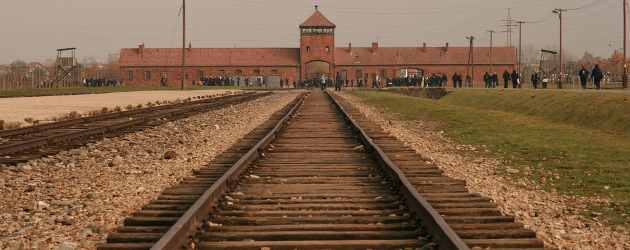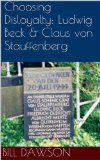In the dedication which begins Denying the Holocaust: The Growing Assault on Truth and Memory (Amazon US, UK, CA, DE [eng]), Deborah Lipstadt includes this passage from Deuteronomy 32:7:
Remember the days of yore; learn the lessons of the generation that came before you.
One of the themes of her book which struck me the most is the blatant disregard of eyewitness testimony — most especially Holocaust survivors — by those who deny or minimize the Holocaust. With that sad fact in mind, I find the rest of that passage of Deuteronomy, the part she did not include, poignant and relevant:
Remember the days of yore; learn the lessons of the generation that came before you. Ask your father, and he will tell you; your elders, and they will inform you. [my emphasis]
One of Lipstadt’s examples of fathers and elders being ignored can be seen in this passage concerning evidence of the gas chambers:
Deniers, led by [Robert] Faurisson, repeatedly call for “one proof… one single proof” of the existence of homicidal gas chambers. They dismiss the reliability of all human testimony, whether it came from the SS, surviving inmates, or Sonderkommando members. They do so despite the fact that regarding the general details of the gassings, the testimony of all the parties tends to corroborate each other. [from the Appendix, p. 225 of the 1994 Plume printing.]
The Robert Faurisson whom she mentions is one of a cast of the more prominent characters whose Holocaust denial or minimization she discusses. Lipstadt generally follows a chronological approach, beginning even before the Holocaust itself: from Chapter Two, “Antecedents”:
The deniers consider themselves heirs of a group of influential American historians who were deeply disturbed by American involvement in World War I. [31]
To Lipstadt, those earlier so-called revisionists were unlike their Holocaust-denying followers in the sense that the post-World War I group consisted largely of serious historians engaging in serious research. One of them, however, became the bridge between that first generation of revisionists and the later group that assaulted the memory of the Holocaust: Harry Elmer Barnes. Barnes therefore plays a prominent role in Chapter Four, “The First Stirrings of Denial in America.” After Barnes, Lipstadt discusses several others at length, amongst them Austin J. App — who, for example, argued that the Germans clearly did not exterminate Jews since, after all, “every Jew who survived the German occupation is proof of this” [93] –, Arthur Butz, and those associated with the Institute for Historical Review.
Lipstadt also dedicates entire chapters to the “Gas Chamber Controversy” (chapter nine) and “The Battle for the Campus” (chapter ten.) The latter, as you might guess, examines efforts by various groups to promote Holocaust “revisionism” on college campuses. She then ends with an interesting Appendix, wherein she takes on three of the most common Holocaust denial arguments:
- The Nazis would not have used Zyklon-B: it would have been far too dangerous for their own personnel to handle. Therefore traces of it found at Auschwitz can be explained only as having been used for decontamination of morgues rather than for homicidal purposes.
- There is no documentary proof of the existence of gas chambers.
- The Diary of Anne Frank was not written until after the war, and not by a young girl named Anne Frank.
I won’t give away the evidence that Lipstadt compiles against each of these claims; read the book! It’s almost embarrassing for me to even mention the claims. Lipstadt herself recognizes that publication of such arguments touches a nerve:
I do so with some reluctance, lest it appear that I believe that serious consideration must be given to these people’s claims. I do, however, believe that even a cursory perusal of the relevant sections of these documents will demonstrate the deceitful quality of the deniers’ claims.
The fact is, most of us studied the Holocaust not to amass an intellectual arsenal against its deniers, but rather simply to learn about it and to learn from it. We don’t study it expecting to need to prove its existence. When someone comes along with plausible-sounding arguments denying or minimizing the Holocaust, we are not prepared to answer. This means we either come away thinking, “That guy was a nutcase,” or we come away with a seed of doubt successfully planted in our heads. So while it is no doubt distasteful to grant the deniers’ arguments something resembling an intellectual debate, it is nevertheless a good thing we have people like Deborah Lipstadt to take on this depressing task and produce books such as Denying the Holocaust (Amazon US, UK, CA, DE [eng]).
(Photo credit: The lead photo in this blog post shows the entry to Auschwitz and belongs to flickr user “One from RM”. http://www.flickr.com/photos/onefromrome/ / CC BY 2.0.)



